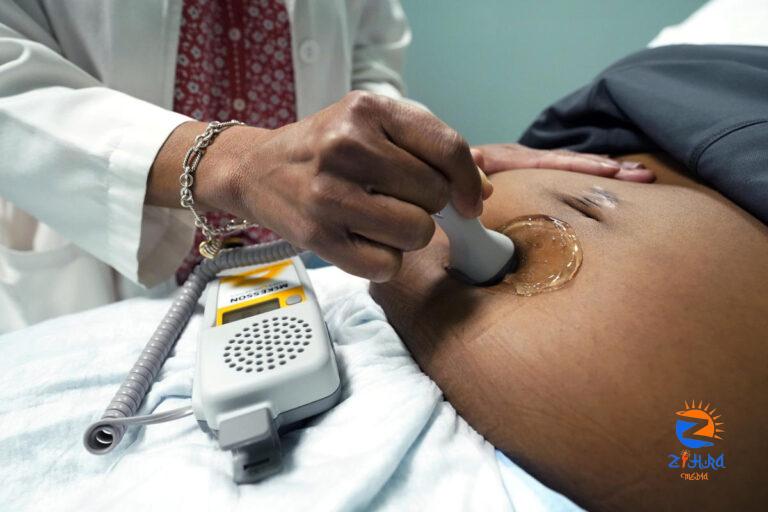
[ad_1]
This week Time published a story about a 13-year-old girl in Mississippi who, thanks to the state’s new abortion ban, was forced to give birth shortly before entering seventh grade.
The story highlights how increasingly challenging it has become to obtain an abortion in many parts of the country, even for those who are supposed to be exempt from many of the strictest state laws.
According to Time, the girl’s mother says she was raped in their front yard by a stranger last fall and police were reportedly contacted in January, after the girl was admitted to the hospital for vomiting, only to learn that she was pregnant. Yet while Mississippi’s stringent abortion ban allows for exceptions in cases of rape that have been reported to law enforcement, the state’s only abortion clinic closed its doors in July 2022.
Because Mississippi is surrounded by states that have also banned the procedure in most cases, the closest abortion provider was in Chicago — over 600 miles, or roughly a nine-hour drive, from the girl’s home in Clarksdale, Miss. The cost of such a trip, plus the time off work, was something her mother couldn’t afford, leaving the girl to become a mother herself at age 13.
Twenty-one states have either banned or restricted abortion since the Supreme Court decided to overturn Roe v. Wade in June 2022, eliminating the constitutional right to an abortion. Many of those state laws have exceptions, including provisions for victims of rape and incest, or for expectant mothers whose life is at risk.
But even in states where abortion providers still exist, there are many hurdles to taking advantage of such exceptions, which often require a woman to prove that she qualifies.
“For some, going through all of that will be just utterly exhausting to such a degree where it can feel hopeless,” Michele Goodwin, chancellor’s professor at the University of California, Irvine and author of Policing the Womb, previously told Yahoo News.
Yahoo News spoke to Goodwin and other experts in May 2022 about the challenges women may face in navigating the exceptions to new state abortion bans.
Most sexual assaults go unreported
Goodwin noted at the time that more than 2 out of 3 sexual assaults go unreported to police, according to the Rape, Abuse & Incest National Network. Many victims say their silence is due to fear of retaliation and social stigma.
“In the process of going through all of these things, they may not be able to meet the state’s timeline in which they’re able to terminate a pregnancy,” Goodwin said. “So even if these exceptions do exist, it’s not as if the current exemptions, as they are, create any kind of dignified path to be able to get this kind of health care.”
Even more barriers for minors
The process is even more challenging for minors, especially those assaulted by their legal guardian. Goodwin further noted that many young girls may lack the financial resources to navigate the legal bureaucracy.
“Imagine a situation where now you have to get the permission of your father, the person who raped you, in order to be able to get the abortion, or you have to go to a court and find a judge and get on a schedule in order to be able to do so,” she said.
How to determine when the mother’s life is at risk?
In addition to rape and incest, many state abortion bans also include exceptions in cases where the mother’s life is at risk. But Dr. Jennifer Villavicencio, the lead for equity transformation at the American College of Obstetricians and Gynecologists, told Yahoo News last year that the language around such health-based exceptions is usually vague and difficult to enforce.
“There are no bright lines anywhere that says somebody crosses from one threshold to another, and now all of a sudden their life is at risk,” Villavicencio said. “As medical experts, as doctors, as people who work to save lives every single day, we do everything possible to keep you from getting to a point where your life is at risk, and sometimes that means ending a pregnancy that could put your life at risk.”
Villavicencio said she was worried that doctors in states with strict anti-abortion laws won’t be able to prioritize the health of their patients — instead they’ll have to think about the law and wait until a patient’s life is at risk before performing a necessary abortion, out of fear of losing their license or potentially facing criminal penalties.
“People are going to get much, much sicker, and sometimes they’re going to get so sick that there’s not an intervention that we can do to bring them back,” she said. “That’s why we talk about these laws as being life-threatening, because they truly, truly are.”
[ad_2]